Wednesday, August 17, 2011
Reflections on Ivy League Connection
I do not know what the ultimate goal of Ivy League Connection is; what the purpose of encouraging a select few from our district to go on and be successful. But I know how I feel about it. I will take all the help I can get, to become equipped to promote positive change, and act on the understanding I gained from El Cerrito High. I hope my program mates feel the same way because now I know how few of us there really are who feel as I do, and know what I know. Most of all I hope that the ILC's investment in us is worth it in that regard.
Reflections on Grand Strategy
This kind of thinking always leads me to questions that are perhaps too big to answer, and the important question arises of whether it is worth thinking about at all, as opposed to just molding what we already have into something better. In the Grand Strategy program, I would say the latter. What the program came down to was how to view the world as a whole, through many different lenses, come up with plans that could make an effective difference based on that more holistic understanding, and above all, how to succeed. The world's imperfection leaves gaps, holes that must be filled by powerful people to function successfully. At Yale, I met 50, give or take, of those people in 20 years. The hope is that through education, and a moral compass provided by God, society, or whomever, these people will move the world in a positive direction. Unfortunately there is no test that power will not be abused, leaders will always act justly, or that they will make the "right call." But there are ways to approximate who is on a track for success, and again, Grand Strategy found them, and I met them. My hope, and something that I think is very wrong with the world that I can pinpoint, is that future leaders become less focused on victory and success. The paradox of politics and leadership is that you want power to implement policy based on your ideology, but you must continuously sacrifice that ideology to stay in power, and achieve your more important goals. My question is when does one stop? At what point is it better to lose power for the sake of your principles?
My criticism for the world is that winning almost always is a greater incentive than upholding one's principles. Moreover, I felt that the need to win was conditioned into many of my fellow Grand Strategists.
So what does this mean for me? Well if the majority of "future leaders" are not thinking about the intrinsic imperfections in our society, and I my have the potential to be a leader, maybe it is my responsibility to think be an advocate of that mode of thinking. I think that what I will have to answer for myself, is how to reconcile that with being a societal leader, and whether it is even possible to function as both a gear and a critic of the same machine.
Thursday, August 11, 2011
A Whole New Me
Wednesday, August 10, 2011
"We Few, We Happy Few, We Band of Brothers"
Tide Embraced: Reflection of the YISP Experience
Remember the tide?
Prior to boarding the plane and prior to everything I was to experience in the East Coast, I envisioned an incoming tide and myself an amateur surfer. I didn’t know what I was getting myself into entirely. I kept an optimistic and brave front most of the time, even though the fear of not meeting expectations or making a fool of myself were common nightmares I’d let surface now and again. This was how I’ve always carried myself despite the ultimate coward I was capable of being internally. I envisioned myself coming out successfully in the end as much as I imagined myself undergoing all possible routes of failure. In the end, was I going to become plankton in the big ocean, or an obnoxiously large whale in an elementary school drinking fountain?
I was a participant of Yale Ivy Scholars for the summer of 2011. I was among 72 students this year, all studying under the “Grand Strategy” course. Before I started this program, I admit that I had a hard time explaining what this program was really about. Now, I can say with more confidence, just what “Grand Strategy” really is. Being a “Grand Strategist” is a never-ending climb, not to perfection, but a climb for the sake of climbing. You’re constantly learning and curious. You’re always trying to solve the problems before you by using the best method you think is possible. You never stop asking yourself: “If I was in his/her shoes, how would I have handled it?” You are a leader striving for effectiveness and understanding; you shun power and personal rewards.
Simply saying that I learned a lot from these past fifteen days would be an understatement. Rather than bore all of you with lengthy recollections of what I learned during lecture, however, I will share with you some of the most important things I’ve come to realize and now, fully abide by.
Spending Time with People Smarter Than You
You feel a mixture of inspiration, jealousy, and intimidation whenever you hear any one of them admit to their past achievements and accomplishments. I may not know every detail about my fellow peers, but never once have I heard them admit to any of these without being humble or somewhat shy about their successes. One of them was nationally ranked 19th as a policy debater, while another can claim they’ve sat on the British parliament for simulation. Some of them never bothered to share their achievements, but their reservoir of knowledge – displayed throughout lectures or casual conversations – was obvious. Everyone around me was exceptional, one way or the other. I didn’t get the feeling that they paid their way through alone; they all deserved to be there. Many fearlessly participated and spoke their mind during lectures and seminars – you’d rarely see this in my high school. And if they were not as outspoken as the aforementioned group before, they were surely talented in other ways – especially in writing.
The talents among them were endless; in addition to their intellect, there was a handful that could also sing, dance, draw, and/or play sports, just as skillfully. There is really no way to rank these people. You easily feel subordinated. Yet, despite constant exposure to these brilliant beings, I still, remarkably, had room for personal pride. Many of my fellow peers were a lot stronger than I was, in a variety of areas, and I was not the least bit surprised. However, the yearning to be like them subsides when you realize that you’re imperfect and cannot expect yourself to be like everyone who inspires you. Instead, you accept that you’re not nationally ranked 19th for policy debate; you indulge in the exceptional company before you and be thankful for all the unique qualities that make you, you.
The Meaning of Great Education
Everyone that’s been there tells me that college education is wonderful. If in high school you didn’t feel particularly satisfied, than college education would fulfill that void, or so I’ve been told. At YISP, the education that was promised was delivered. All the guest lecturers that graced their presence before us inspired and amazed me to no end. There are some undergraduate students, even graduate students, who’d want to sit in one of our seats for during some of these lectures. Four to five students alone, as Dr. Luong told us, wanted each of our spots based on the total number of applicants this year.
In addition to the extensive topics covered during seminars and lectures, I especially liked that this program avoided a grading system. And yet, even without grades to act as incentives among us, no one took advantage of them to avoid class. It was learning for learning’s sake – not even the best private secondary schools in the country could boast these high percentages of mutual attitude within a classroom. Granted, levels of attention varied from lecture to lecture, but generally, everyone tenaciously stuck with the heavy workload expected from our everyday schedules. In addition to the breadth of renowned teachers we had giving us lectures, it was also an honor to sit with such driven and intelligent group of students. Every day, they’d bring to lectures their own knowledge and ask questions I haven’t even thought about. They fearlessly stand by their opinions, unafraid to meet those who challenge them in the eye. Some may stutter to attempt a rebuttal, but they’d never sit down in hopeless defeat. They’re not always right and their questions may not always be the smartest, but all of them share ruthless courage.
Back at Pinole Valley, I sometimes feel ashamed to hog class time with my questions, especially when none of my fellow classmates seem to show any interest in asking questions of their own. Many students within our lectures never ask questions too, but that doesn’t stop the rest of them from asking questions when they really had one. These lectures always devote an hour in the end for questions and answers; I’m going to miss seeing a forest of raised arms when I start senior year at Pinole Valley.
No Longer The Top (Accepting The Inevitable and Moving On)
When I was much younger – when I boldly thought the world was a lot smaller than everyone thought it wasn’t – I used to believe I could, or would, eventually become the best at [fill in the blank here]. I was so competitive; I hated admitting to defeat. This attitude served me well during my early youth, when my fellow peers were more interested in playtime or naps then fretting over being number one all the time. Only I was crazily obsessed with ambition (to this day, I am baffled by where it all came from).
As I grew older, however – moving from fish bowl to aquarium – I ran into defeat and rejection more frequently alongside occasional moments of triumph. The first time – okay, the first several times – they hit me really hard. Physically, I never harmed myself, but emotionally, I felt sharp stings. I was so uncomfortable with defeat. I scolded myself for not living up to expectations. At every downfall, I felt like “the magic” was rubbing off. What was wrong with me? What was I doing wrong? Eventually, and thankfully before this program, I realized that there really wasn’t anything wrong with me and that I didn’t do anything wrong. It was life.
I cannot expect to be the best at everything; there will always be someone better in some degree. Being at YISP this year, strengthened that lesson. Most of the 71 students around me were just as, if not equally as, ambitious as I was. I could’ve strained myself to an extent to beat all of them (though I highly doubt it), but that would be such a waste of my experience. You risk your potential to get the best from an experience like the YISP by being close-minded and treating all those around you as threats to your spot at the top. Sure, proving yourself to be one of the best among this pool of students would have surely been something to boast about in the end, but weren’t all 72 of us chosen for a reason? There will never be an adequate apparatus to measure success and capability; they will always be weighed and scaled through personal opinions. In my opinion, everyone YISP Grand Strategy was already at “the top”. I did not receive any special awards in the end, just the same certificate of completion that everybody else received. Yet, I’m not bothered at all. Indefinitely it would thrill me to return home to Pinole, CA to wave two certificates in my hand, but I’m perfectly content with the one I got already.
The expectations I try to fulfill are solely my own now. I take those of others into serious consideration, but in the end, I make sure I satisfy my own desires first. “Are you happy?” I’d ask myself. Even if I honestly replied that I was somewhat disappointed, I remind myself that there was always a brighter side to things and that tomorrow was a clean slate. It’s not because I’ve lowered my own expectations of myself or that I was pulling myself away from competition. I continue to set extremely high goals and refuse to give up without a good fight. For me, lingering in the past and beating myself over errors was counterproductive and a distraction from moving forward.
To pick up from your mistakes and move forward, ask yourself what it is that you can do to avoid the same error in the future, not screaming impossible questions to yourself, like "Why can't you do anything right, for once?!" I certainly didn’t leave YISP as one of the “top” students (if we’re really considering any form of rank here) and I do not consider myself less of a person. I gave my best effort – arguably, I should’ve been a bit more confident in putting myself out there – and I can’t expect something that I couldn’t deliver. Being able to consider myself an Ivy Scholar is a big deal to me. It makes me proud.
The Importance of Knowing the World Around You
If you do not already read newspapers and/or watch the news as close as you can get to daily routine now, I highly suggest you start. The modern world we live in offers no excuse for anyone to continue going about life without taking the time to check up with current events. The entire faculty at YISP either stresses this and/or engages in this routine as if the day would be incomplete without it.
I used to make up some excuse – like how busy I always was – to make me think this jagged faith to the world around me was okay. It is not. Now, I see this as a poor excuse. If you can’t find time, you make time. Different news articles have different effects on the individual but you’re not being asked to become an expert on the world. You just have to be aware.
I am reminded of Mr. Paul Solmon as I write this. He covers the economics portion of PBS NewsHour and I look up to him highly. For Mr. Solmon, he is concerned that by the increasing number of Americans – especially young adults – who know so little about the economy. It’s extra knowledge that could only help and better your future in the long run. Don’t let the need to catch up with old news stop you from reading current news. Go forth and be knowledgeable. Having an interest in the present means you show an earnest care for the future.
Teamwork
My Marshall Brief group was told that we had the hardest topic among the rest. Later, the whole groups expressed that they heard similar comments. Whether Mr. James “Jeb” Benkowski – our Marshall Brief advisor – was trying to inflate our discouraged and frustrated heads or not, our group were guinea pigs to an “experiment” Marshall Brief topic. Our topic – “International Action for the Korean Peninsula (PRC)” – was the first Marshall Brief the YISP attempted to do under the perspective of another country. In addition to learning as much we could about the DPRK, our group also had to adjust our thinking so that every policy we wanted to implement was something the PRC, not the US, would do.
My Marshall Brief consisted of four girls in total, including myself. Not only were we one of the smaller groups (the average was five or six); we were also the only all-girl group. Among each other, we constantly joke just how horrible this combination was. A grouping of equally driven girls working together – are you looking for trouble? Perhaps. But the four of us worked – pardon my French here – our asses off to be prepared for our presentation in the end. Yes, it took us much longer to choose what it was exactly that we wanted to do with our topic. Yes, we missed some deadlines by minutes. Yes, we’ve pulled all-nighters to stay on top of things. And yes, we sometimes skipped delicious meals at the Silliman Dining Hall.
Some groups had one or two individual that rose to take charge while others had too many taking charge, thereby jeopardizing progress. In our group, any one of us could’ve taken charge, but instead, we all took equal, dual roles as leader and follower. There was no finely drawn line in terms of our individual responsibilities. No one really assigned things; we all determined whether the duty at hand measured equally with the weight the others were pulling. Looking back at it all now, I can see how this method was both a good and a bad thing.
I honestly have yet to figure out what the ideal method of teamwork is among a group of leaders. I can tell you what a leader should do in a team, but when it comes to leaders leading amongst each other, I am still a bit lost. However, I do know that it is possible. I also know that when leaders do work well with one another, some of the best work imaginable results. The astounding Marshall Briefs each group produced only after a couple of days work is proof.
My Marshall Brief group’s teamwork was not perfect but how well we performed during our presentation capped any remaining frustrations we had in a bottle and was tossed out to sea. Our Marshall Brief did not win any awards, but none of us complained. The hard work we all put in, obvious by our tremendous reaction once it was all over, was incredible. Even though we didn’t end up as “the best Marshall Brief”, I’d trade good teamwork and harmony over winning such a title under an imbalanced and constantly bickering regime.
Life-long Friends
There was so much work to do during these fifteen days that simply attempting to squeeze an adequate social life would loosen the fragile, delicate fabric of progress. Yet, despite all the opportunities that this schedule gave for all 72 of us to become lone wolves, nearly everyone rejected that wonderful option.
It seemed as if the more lectures and challenges we were constantly being thrown at by the faculty, the more prone we all were to support and confide with one another. With similar work ethics and sense of independence, many of us, remarkably, found it all the more easily to establish close bonds. These friendships are some of the strongest and most unique bonds I’ve made for such a short period of time. There was a mutual understanding of the struggles and frustrations we felt from the work put before us – like a language we developed among one another.
The girls I shared a suite with always brought a smile to my face, even though I often returned to our dorms with Marshall Brief work that extended across the night and into early morning. Everyone understood the need for quiet time to concentrate; they respected everyone’s need to work instead of joining the circle of latest gossip. By the time this program came to an end, I surprised myself with misty eyes. I feel very blessed that I had the chance to call these incredible people my friends.
- - - - -
To revisit the concept of the aforementioned tide, I’ve come to realize that I wasn’t an amateur surfer at all. If I had to provide a more accurate analogy, it be much more appropriate to say that I am like a baby turtle, freshly hatched from my egg. Unlike the surfer and more like the turtle, I am not alone on the sand. There are a bunch of other baby turtles, just like myself, struggling to reach the tide.
Through the eyes of man, the distance is only several paces – such an effortless task. For these baby turtles it’s a journey of life and death. Looking back at the entirety of summer vacation, YISP looks like several paces but it really was a long, challenging journey. Just like these baby turtles, making their way across the sand, the Yale Ivy Scholars of Grand Strategy braved through these fifteen days. Some moved faster than others; some dodged several seagull attacks. In the end, though, we all made it safely into the tide.
The tide was good all along. When you see yourself as a surfer – so caught up in yourself and what it is that you want to accomplish – you’re so anxious to worry about the outcome and not the actual process to reach that outcome. As an amateur surfer, I worried about whether the tide would bring success or failure; I didn’t even consider whether I’d even reach the tide or not. I was so caught up with the conclusion, I forgot about the climb I had yet to even start.
The tide was good all along. As one of the 72 baby turtles slowly sifting through the sand, it was completing the journey on time and as safely as possible that ranked as our number one priority. Baby turtles do not spend their first moments out of their shells, casually daydreaming what the ocean was like. For them, it was work first, reward later. Just like these hardworking baby turtles, that was how everyone at Ivy Scholars viewed these fifteen days. We couldn’t wait to experience that happiness that all our accumulated hard work would eventually come to highlight, but before we could have happiness over our accomplishments, we needed the hard work.
All of us made it to the tide in the end. The strength of the current could no longer keep us together, as it yanked each of us to individually different directions. Although the final destination of these hardworking baby turtles remains a mystery, all of them are bound for something big within that endless ocean. Their struggle across the sand does not guarantee their success, but their incredible ability to defy their slim chances for survival have turned all of them into toughened turtles, ready to face whatever obstacles comes their way. With hope, some of these turtles may cross currents one day, but then again, they may not. These turtles will never forget their journey across the sand, greeting a tide that was good, exceptionally good, all along.
by Dyana W. T. So
Encore!
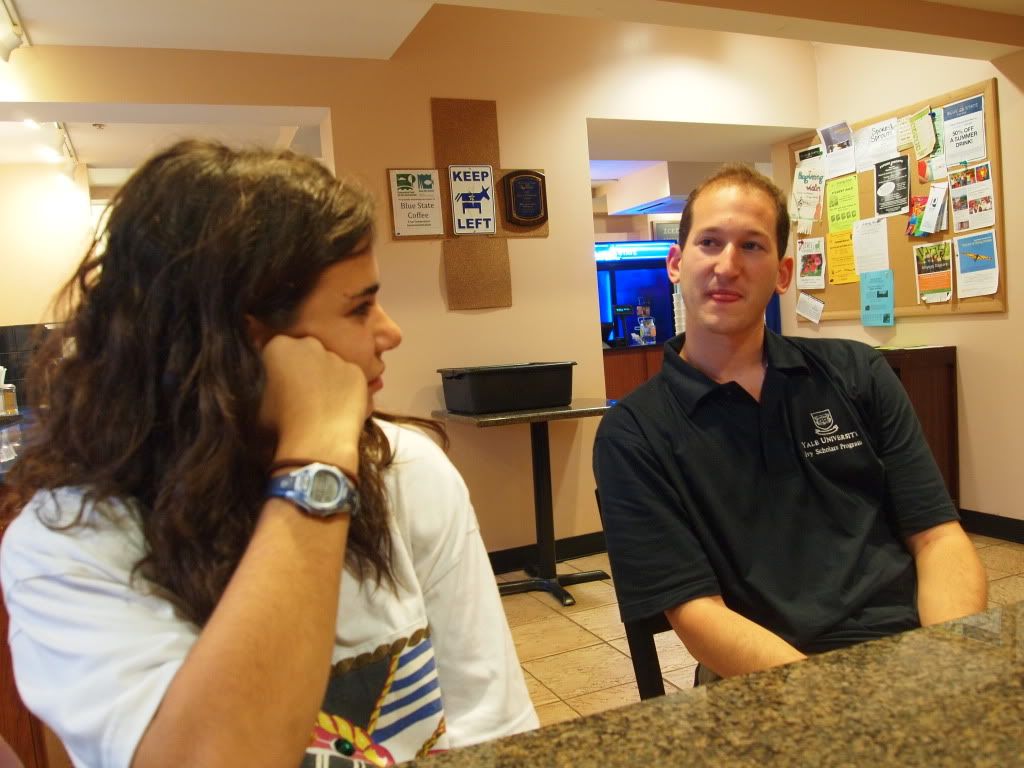
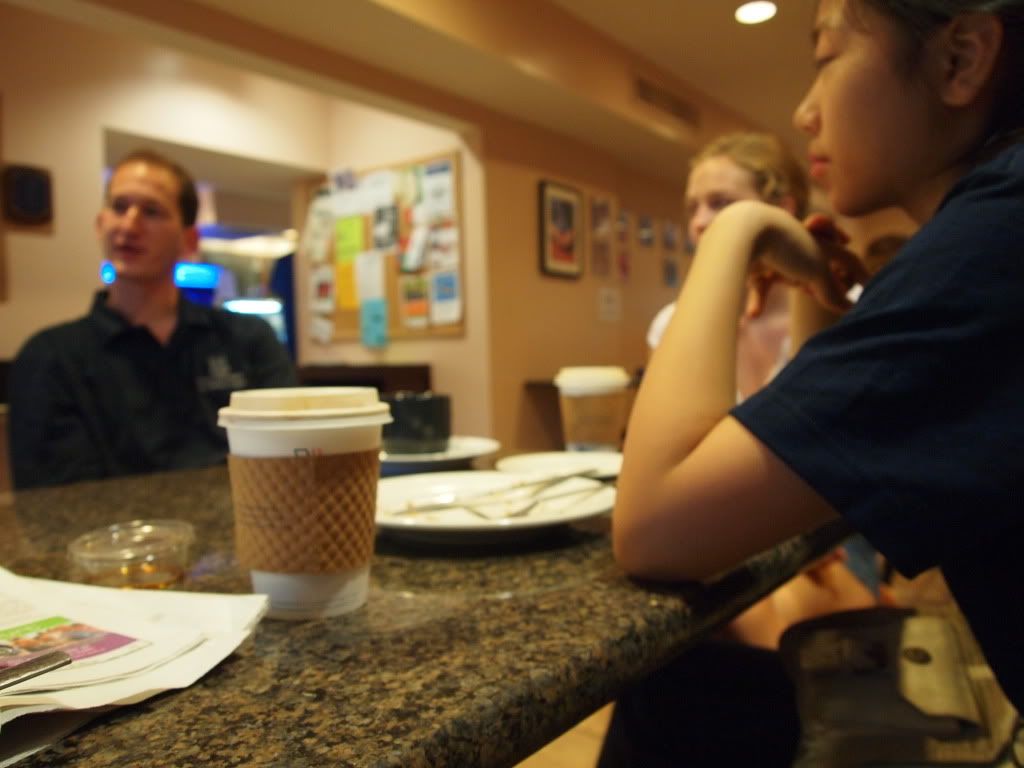
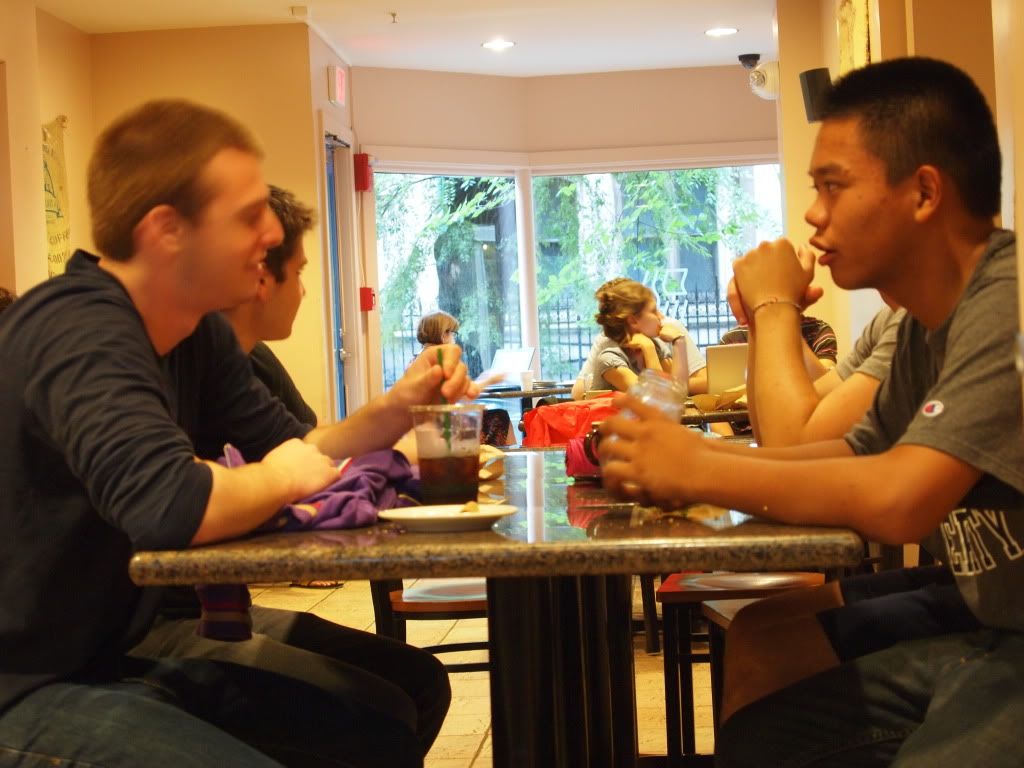
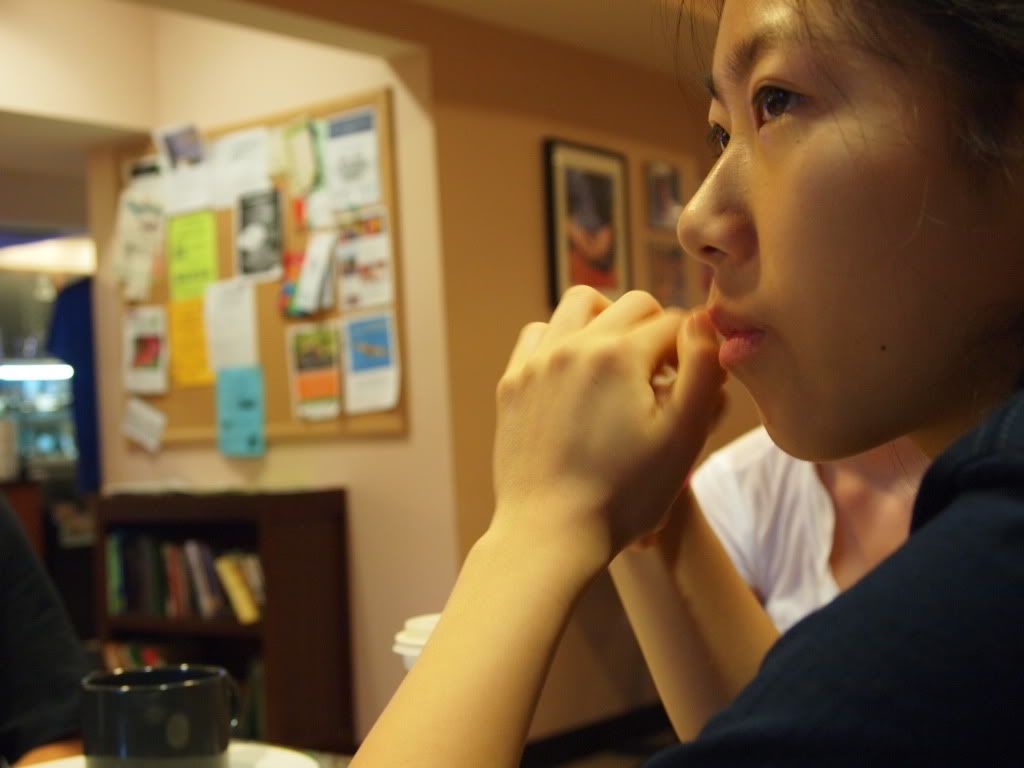
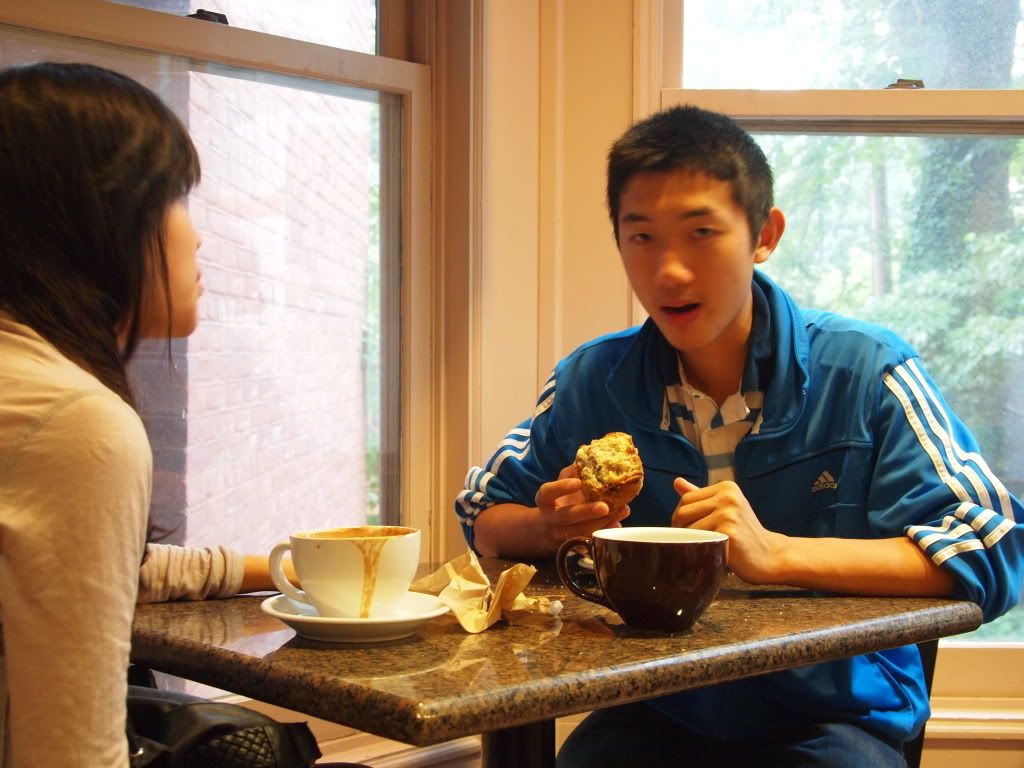
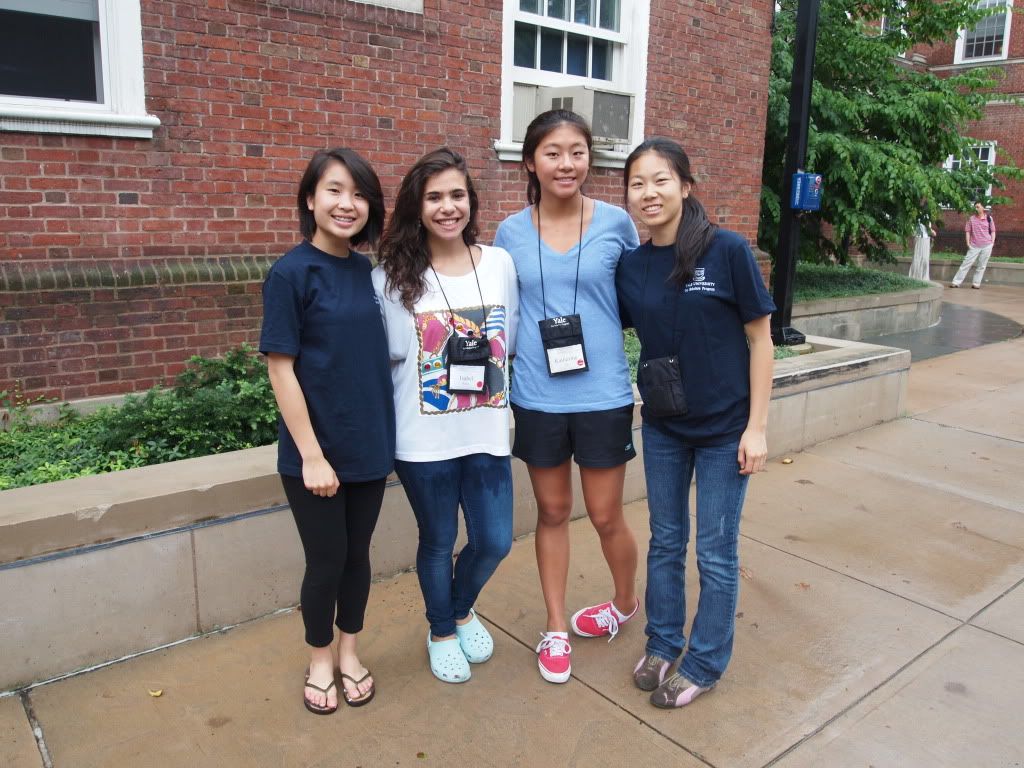
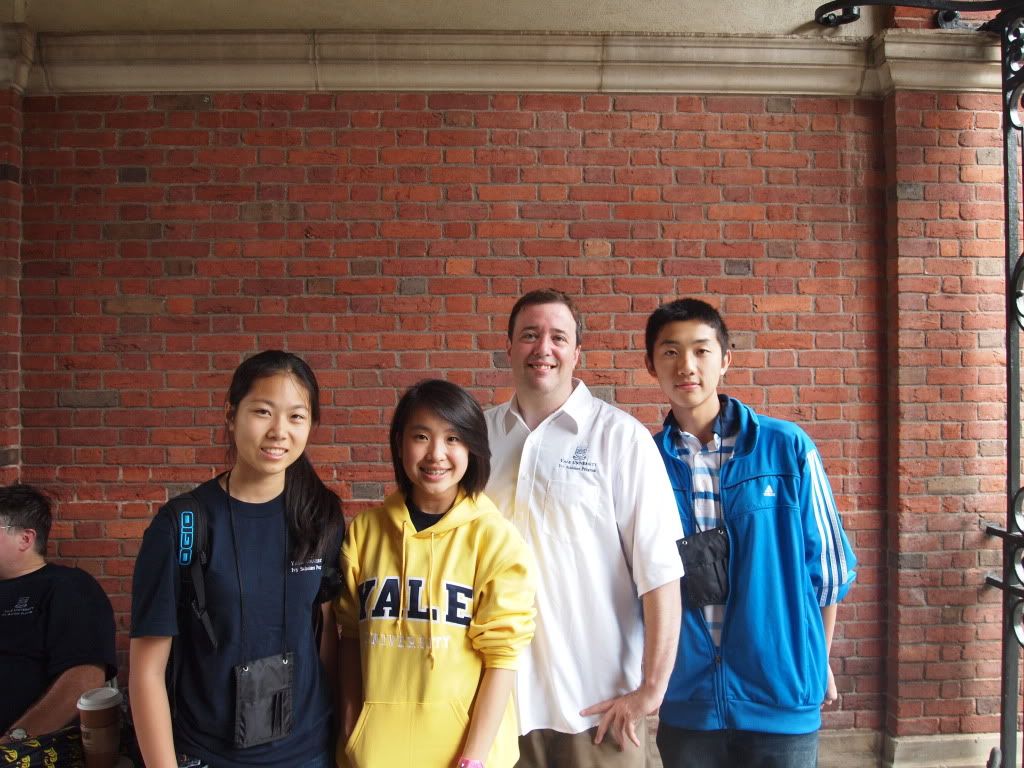
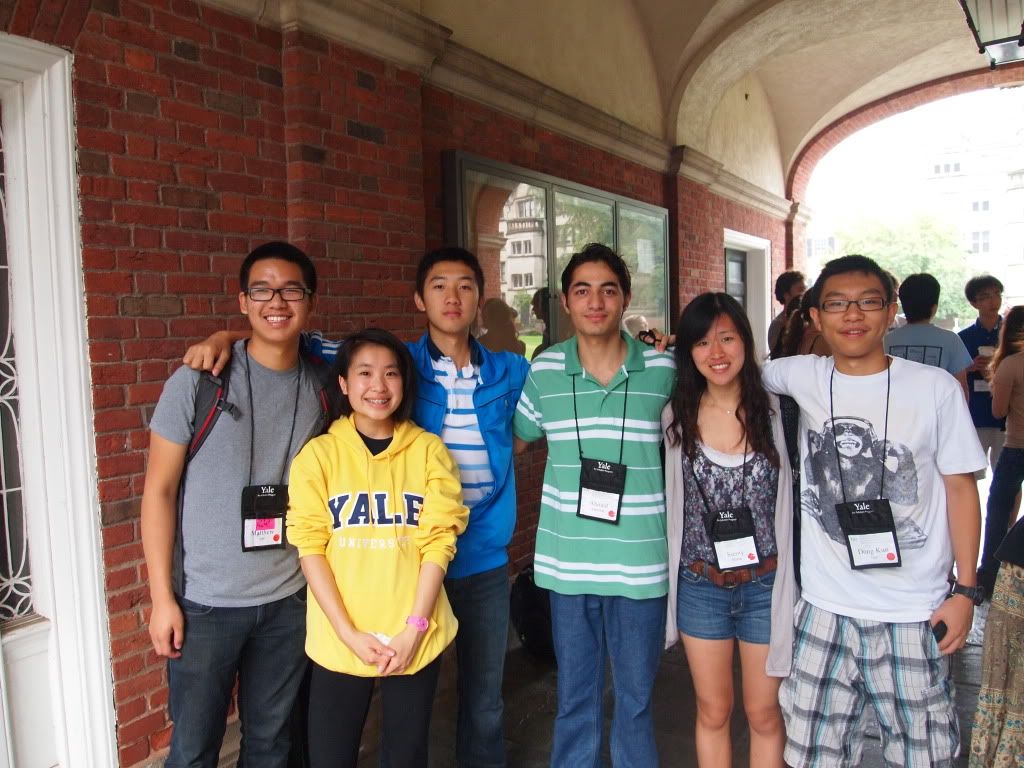
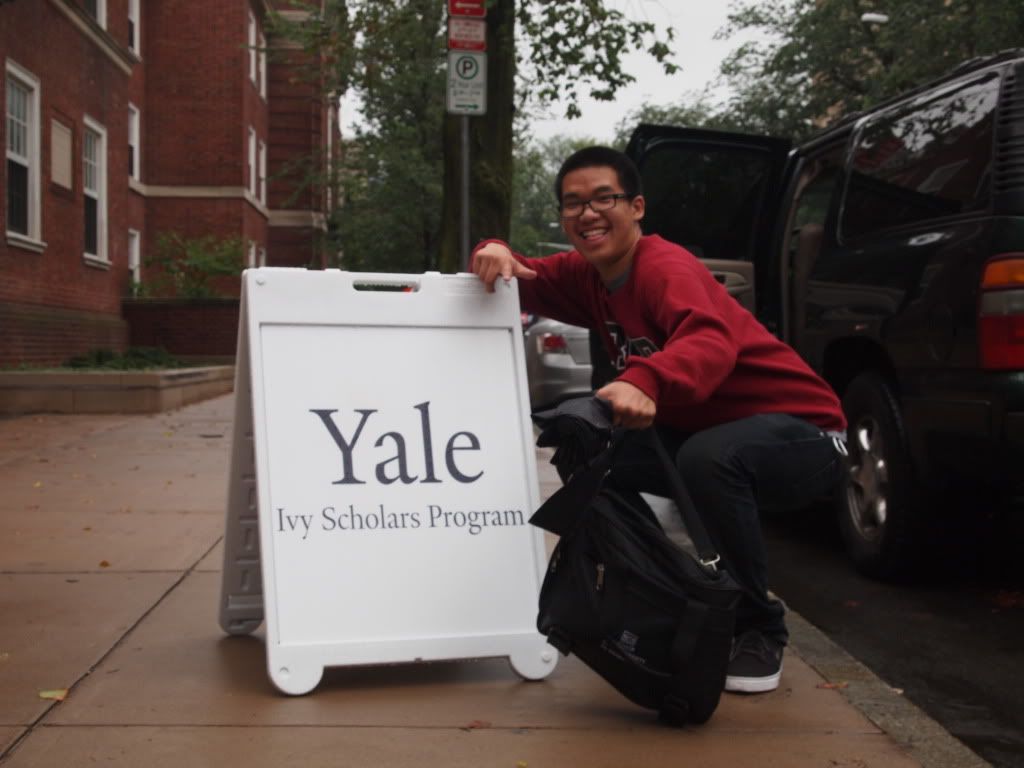
Wednesday, August 3, 2011
Yale School of Medicine
I was very excited to hear that Yale Medicine has a large contingent of students that had come from California and even have a support system that they created, to help adjust to the east coast. While most of us change our career paths many times, the idea of having options and ideas beyond the small area that we live in is vital to making the best choices for ourselves. While much of the application appears to mirror that of many other medical programs, Yale Medicine has a wonderful book called "100 Reasons" that give some amazing insight into why Yale? One of my favorite is number 10. Haven Free clinic that was created by medicial students, nursing and public health in 2005 to help the area here around Yale University.
The program sounds amazing, but they key appears not to have the right combinations of classes, internships etc. but rather a grasp on who and what you are and be commitment to that goal, as well as the confidence and belief that this is what you are meant to do.
Tuesday, July 26, 2011
Yale Here We Come

While this may appear to be a negative it really is no harder than a UC application. If just requires your student to do a little more leg work. I also reccomend that your student give a resume or information to each so that they can write a really good letter. If they are apply for scholarships they will need letters for this as well.
I have had the pleasure to talk to a number of students that I done these trips in the past and all say that a college education at an Ivy League school is well worth it.
University of Pennsylvania-The Love
Saturday, July 23, 2011
Adieu For Now
Below is a supplement blog for 07-23-2011
Before it was days; now it is only minutes – 47 minutes to be exact. By 47 minutes, I am referring to the “official” arrival of tomorrow – where future transforms into present, where these back-to-back college visits and dinners end and the objective of our trip will finally begin. Unfortunately for you – the readers – the policies of the Yale Ivy Scholars Program does not permit its students to write blogs during the entire duration of the program. It will be about two weeks before activities by either Matt, Tom, or myself will resume here. Therefore, I'd like to share my final thoughts with you before I return after two weeks as, undeniably, a changed individual.
----
Teleport yourself back to a high school classroom. You're a good student – doing the best you can and trying to stay out of trouble. There's this one student in your class that just returned from a summer studying at an Ivy League university and you discover later in the year that she was taking another summer class, but at a different Ivy League school, this upcoming summer. She's on scholarship again. She could have left the spot open for someone else. She could have. Do you think she should have?
Now I am the student in that theoretical classroom and, if I was asked to respond to this scenario – to this student spending another summer on scholarship at Ivy League schools – I may just roll my eyes and say she really should have left that spot for someone new. The Ivy League Connection is all about giving bright and talented students in our depreciated school district – the West Contra Costa Unified School District (WCCUSD) – the opportunity of a lifetime to be exposed to, not just random colleges on the East Coast, but prestigious ivy league institutions that most have probably never even thought about. Therefore, why is this student going again? Why is she taking up the slot for another bright and talented student?
Well, this student has a name and you're reading my words. This thought has been the uncomfortable thorn I let live under the soles of my feet for the longest time. I do not make references to my summer spent at Cornell University to study “Freedom and Justice” very often, even though I can easily share to you my various moments of deja vu and similarities just in these past few days alone. I do not mention them much because I am reminded of that guilty feeling. You could be reading the reflection of another student instead of mines. That student would probably tell you of all the new things he's come to understand now because of these dinners with alumni, or maybe, she would tell you all the interesting details about the new environment she's witnessing on the East Coast. Instead you got someone who's been there before, so her words are old news; she's no longer inspired. She's spoiled.
My name is Dyana So and I know I deserve to do this program and participate in the ILC again. I mau have been there but I'm not old news. I am more inspired than ever and I am most certainly not spoiled. The ILC does not discriminate if a student such as myself – or Andrew Gonzales, Alex Elms, and Beilul Naizghi – wishes to try and apply again. Our slates our cleared; our summer in the past lingers but it does not affect our readmission. We've joined the rat race again and yes, we do have prior knowledge based on experience, but we have also – and always have – had the same equal chance of getting in and not getting in as everyone else. And by knowing all of this, why do I not be more considerate of trying to let someone else potentially take my spot?
First of all, I never knew that that was ever destined to be my spot. The fear of rejection during both the essay and interview process were real. Being able to board another flight to spend a summer again at the East Coast and study at Yale the second time around is still an unbelievable miracle to me. The ILC was open to everyone; it was th worm dangling on a hook, waiting for the student fishes to take a bite at it. I did not step aside for YISP, nor make my attempt at getting in any less weaker, because, truthfully I'm tired of not fending for myself. I'm tired of thinking for those who do not think for themselves. You’re probably wondering who I'm really addressing this spiteful message to and, if there really was someone that would have been that student that rolled their eyes or not, I am ultimately speaking to this demon within me.
I truly felt at the end of Cornell Summer College last year, even more so than I already had, just how much this program meant for me and had done to change my life in no other direction than the better. I still feel this way even though it is my second year; I am grateful that another hefty scholarship was put into me when it honestly could have gone to someone new. Yet, as guilty as I may let myself feel for that unknown student that could-have-been, I've come to tell myself to stop prying those heavy doors of opportunity to these invisible beings. They certainly exist – these bright students from our school district who could also do just as well in this program – but why let the breeze in for someone who refuse to be visible and open the doors themselves? They are heavy but it's not like I didn't strain to get it to open either.
My position as a two-year participant of ILC is reminded when I see one of my current cohort, Matt Lee. Before we boarded the plane, I asked if he was going to apply to any schools on the East Coast. He quickly responded that he was probably only applying to the UC schools and other colleges strictly in California. He admitted that these college tours may just change his mind a bit but he wasn't sure if that would likely happen. But now, four days in and many college visits and dinners later, Matt's attitude has changed. He tells me what it is that he liked and didn't like about certain campuses; he actively asks questions regarding the schools at the dinners. I recently asked him again that same question and now he tells me that he will highly consider applying to East Coast schools or definitely will apply to some. That's the intended effect the ILC is supposed to give the first-year students – that realization that they are just as capable as another student somewhere in the United States attending the best private schools around. They start to consider an option they never really thought about – especially for those who always saw the UCs as their dream schools. They start to fall in love with these “new” schools and desire to, more than ever, work harder to ensure admittance. Knowing Matt since middle school, I was very pleased that the ILC has truly reaped the biggest of epiphanies for not only my friend Matt, but also for its many cohorts including myself.
As a second-year ILC cohort, I look at everything differently and there's no changing that. The first time was the life-changing moment – that one-time chance to be the lucky recipient of such a phenomenal scholarship – and the second time around has been more of a cycle of wisdom and realization. The exciting opportunities to visit colleges – even back in California I never visited a single college campus except Contra Costa College for summer classes – sometimes overshadowed the conference I'd hold within my head to debate whether this college was an actual fit for me or not. Now, as a second-year, the excitement is still there – but controlled. I'm less interested in the idea of being somewhere new and more interested in asking all the questions I can and visioning myself at this particular school only a short, one year later. I value admissions officers who take their time out to meet us more than the first-year. I start to pick up ideas and advice I hear that does not necessarily do me any good but does do a good deal for others. I am thinking about how I can be a better ambassador and bring these experiences to life for people back home. I start to feel this awful strain my stomach whenever I sit before fancy meals and purchase items under the ILC because I no longer believe that such elaborate expenses, as good as they were to experience obviously, could really buy me a good time. The chance to be here, even if it meant eating cup noodles every single day until I came home, would still mean the world to me.
The YISP program means more to me than nearly everyone would assume from how little I let myself talk about it in fear of sounding like a boastful brat. In the end, I am very proud of my achievements and I'm proud that, despite taking up a spot that could have potentially gone to someone else, this spot was rightfully earned by me, just as anyone else could have taken it as well. My stomach felt funny today when I went to the nearby Rite-Aid to purchase some items for the YISP that I didn't pack in my suitcase. They were items I needed but the prices of some of them were much higher than I would dare spend back home. I knew I was on scholarship and that the policy of the ILC was to help me pay for anything I needed as long as it was not anything of personal benefit of leisure, but I cannot escape the sensitivity I have to expensive things. My own upbringing made them foreign to me.
Tomorrow I will be staying at a more longer-lasting residence. I have jitters about this program and the thought of failure continues to be an overly redundant naive reflex of yours truly. I am confident in the confidence others have put into me though I am not so generous to myself. My method has always been to work hard, harder, and harder some more. Maybe that method would do little but it might just do a lot. Either way, I can only storm into Yale tomorrow and give it the best I got because if there w
My Kind of People
First let me say that, so far, I love Yale people. I don't know what their reputation is, but to be as smart as they are, and as open and friendly is astounding to me. I honestly feel that Alex's attitude and demeanor as a conversationalist allowed me to talk about that which I am most passionate about, giving me true insight into how to answer that age old question. As I spoke about my time at El Cerrito and the transformation that occurred in me there, culminating in my time at Mosaic, a non-profit youth education project in Oakland, I was able to come up with an answer. While I have so many interests that I love to explore at my leisure, what I love most is looking at traditional fields from a human perspective. Studying political theory, economic policy, etc. through the eyes of an anthropologist, socialogist, cognitive scientist, or psychologist. This is something that has fascinated me before I even heard the term "cognitive science." In fact as I mentioned the field, a current Yale student also attending the dinner, Maria, lit up in response. It turns out she was very interested in the subject as well, sparking a wonderful and passionate discussion of what we loved about it.
I've talked to many people about their reasons for choosing a college, what I have heard time and again, is that someone connected to the college somehow made them want to go. The way that Alex quickly got me to talk about what was most important to me, and to then engage me in a meaningful way about that topic was remarkable to say the least. If I had to choose a college based on the character of the people then Yale makes a compelling case.
Yalies on Yalies

At the final dinner I had the pleasure of sitting next to both of Yohanna Pepa's dorm mates - Mariya and Samantha. After knowing Yohanna for a few years, I can quickly see why both these rising-sophomores are so great. Mr. Alex Richardson, the California representative for Yale admissions was also present, but because I was seated the most distant from him than Matt and Tom, I spoke mostly with Mariya and Samantha.
When it comes to learning about a potential college that I want to apply to, my approach is not traditional. I do not shower these students with questions about the school unless it was something I personally wanted to know or something that I think others may find interest in. With time, the accounts of current college students share nearly the same outline. They all enjoyed their experience; they wouldn't be so great at answering our questions and telling us about their school otherwise. Therefore, I like to get to know the students more through casual conversation, interjecting any curiosities I did have when I had them. I've always found that once I made my guests more comfortable to speak before pure strangers, they naturally start to expel, with more enthusiasm, their input and much more.
With Mariya, we shared immigrant origins. She was from Bulgaria, whereas I was from Hong Kong. The struggles our parents share to come to America for no greater prize than to secure the academic opportunities for their daughters reminded Mariya how much Yale meant for her and how happy I was to hear that.
I connected especially well with Samantha, whom I shared so many personality traits with. I know this not because I showered her with questions regarding only Yale, but because I also ask about her life and time as a high school student. That information is important to me because it gives me a better idea of what Yale is looking for in a student should I choose to apply. Some of the students tell me they had lower test scores but cannot help gushing how proud they are about their personal statements while others commend their collection of extracurricular. Samantha was the first and only present student that gave me the college student perspective from a female standpoint and I am glad to report to report that due to little dissimilarities between male and female students, college is honestly the place to start over. No college student goes out of their way to talk about high school. Everyone is the top of their class but many people bother to compete to extensively or compare one another anymore.
Towards the end, I spoke briefly with Mr. Richardson. He is a very friendly person who is very easy to talk to. I greatly admire his interest in the ILC, in addition to explaining to us more about the admissions process. I hope to keep in touch with him in the future - and everyone else I've met for that matter - with more questions I may come up with.
The Yale dinner was a great one to end our five nights of fancy dining. Swarthmore was a good that the admissions officer lead most of the conversation and spent much time to answer all of our questions in detail. The Princeton dinner was a chance to establish a new connection with a complete stranger - hearing of his successes as both a Princeton alum and progressing lawyer. The U. Penn dinner was the ultimate melting pot of all sorts of representation that it gave more insight from a variety of sources that we had yet to achieve. The dinner with Columbia was great that the alumni were great in convincing myself to be just like them and apply for Columbia. The Yale dinner was unique in its own that it was a surreal preview of what these next fifteen days will be somewhat like.
I thank the ILC for making these dinners happen; they convinced me more about U. Penn and Columbia, and gave me the opportunity to make a good impression on admissions officers. As Peter Chau commented: "This opportunity is such a luxury; legacy kids couldn't even get to meet admissions officers so intimately like this and they get everything!"
An End To The Feasting











